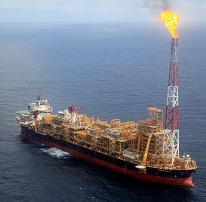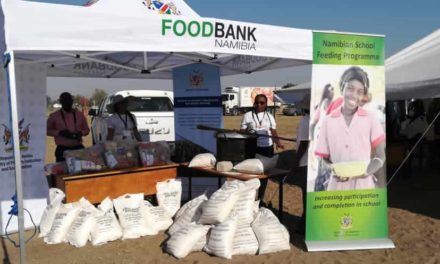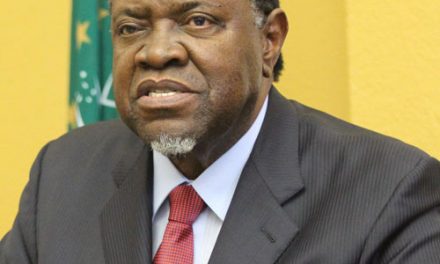
Lions and hyaenas circle around Namibia’s potential oil riches

Ten years ago, in 2013, a Brazilian oil explorer, HRT announced the first discovery of hydrocarbon deposits along the Namibian coastline, in waters of some 350 to 1000 metres depth, located in the Walvis Basin just north of the Walvis ridge, an undersea promontory. Named the Wingat well, it is located some 160 km offshore and about 220 km north-west of Walvis Bay.
Although HRT stated quite clearly at the time that the well did not penetrate any commercial quantities of crude, their sentiment was rather upbeat. If I remember correctly, they announced their findings at a function at State House, rather than at a normal press conference. The reason why I remember this so clearly is because two rather well-endowed, scantily-clad buxom Samba dancers sat on a former president’s lap, which caused him some perceptible discomfort. Strong political connections there at that time, but then HRT and their later partners, Enigma and Tullow, sort of disappeared from the scene.
For the next ten years, all was quiet on the oil exploration front. The acreage auction shortly after the HRT discovery delivered very disappointing results with little interest in the central licences (Walvis Basin) and the northern licences in the Namibe Basin. In the south, on the northern perimetre of the Orange basin, their was some activity but the information that became available always revolved around the Kudu gas field.
An indication of the general lack of interest, is portrayed by the fact that Kudu changed hands several times with conflicting information surfacing every second year or so about the size and the extent of the reserves. From the majors and their partnes, very little was heard although there must have been some activity. One does not hide an oil rig that is anchored in the approach to Walvis Bay harbour and one certainly does not hide them from satellites that keep us updated on the movements of all oil drills and rigs worldwide.
This situation changed drastically by about September 2021 when rumours started abounding in the oil industry of a newly discovered deposit but in ultra-deep waters of about 2500 metres. Nothing more was forthcoming other than the fact that Shell and TotalEnergies were the two majors involved. This was also not hard to figure out since both command substantial acreage just south of the maritime borderline between Namibia and South Africa, which is also part of the Orange basin. So, these companies were already active in an area of which the morphology is basically the same south and north of the borderline, since it is the same basin.
By December 2021 I had received the first fairly reliable indications that both Shell and Total have made significant discoveries, or were in the process of confirming their most recent discoveries but it was only in 2022 that both operators had the confidence to go public with their results.
If I consider the timeframe of recent announcements, I will not be surprised if several more discoveries are announced before the end of the second quarter.
This is all very interesting and encouraging especially after an almost ten-year hiatus. Going by the number of overseas analysts and investors that are all of a sudden requesting meetings with me, I surmise that Namibia, or at least our offshore territorial waters, has suddenly caught the attention of the international oil industry. We are finally on the radar with regard to offshore oil, and after the huge discoveries in Guyana, developing countries with large proven reserves, especially those where an existing oil industry is absent, are suddenly the flavour of the month.
This is where I want to caution my compatriots. Although Guyana’s operators claim that it will be productive in four years, there are many opinions out there that do not support this optimistic view.
I think the recent announcements of three discoveries should already signal a warning. I know that our own government oil-player, Namcor, has a 10% stake in the licenses and that they are eager to keep the momentum going, but the ten-year lapse between the first HRT discoveries and the recent discoverires, should serve as a stark reminder that the oil majors are not called majors without reason. They are massive companies with much more clout than an insignificant third-world government’s proxy company, and what I have seen in the industry over the past 30 years, showed me that the majors work in their own interest, not in the source country’s.
So, my dear fellow Namibians. Heed the warning, Caveat Emptor, and make sure what our role and position is in the nascent local oil industry.
And if we start pumping in four years, it is fantastic, but rather be prepared to start pumping in ten years. That is more in line with the rate at which new oilfieds have been brought on stream in other parts of the world. And if you are looking for deepwater comparisons, go read the history of Tupi, it says it all.












































